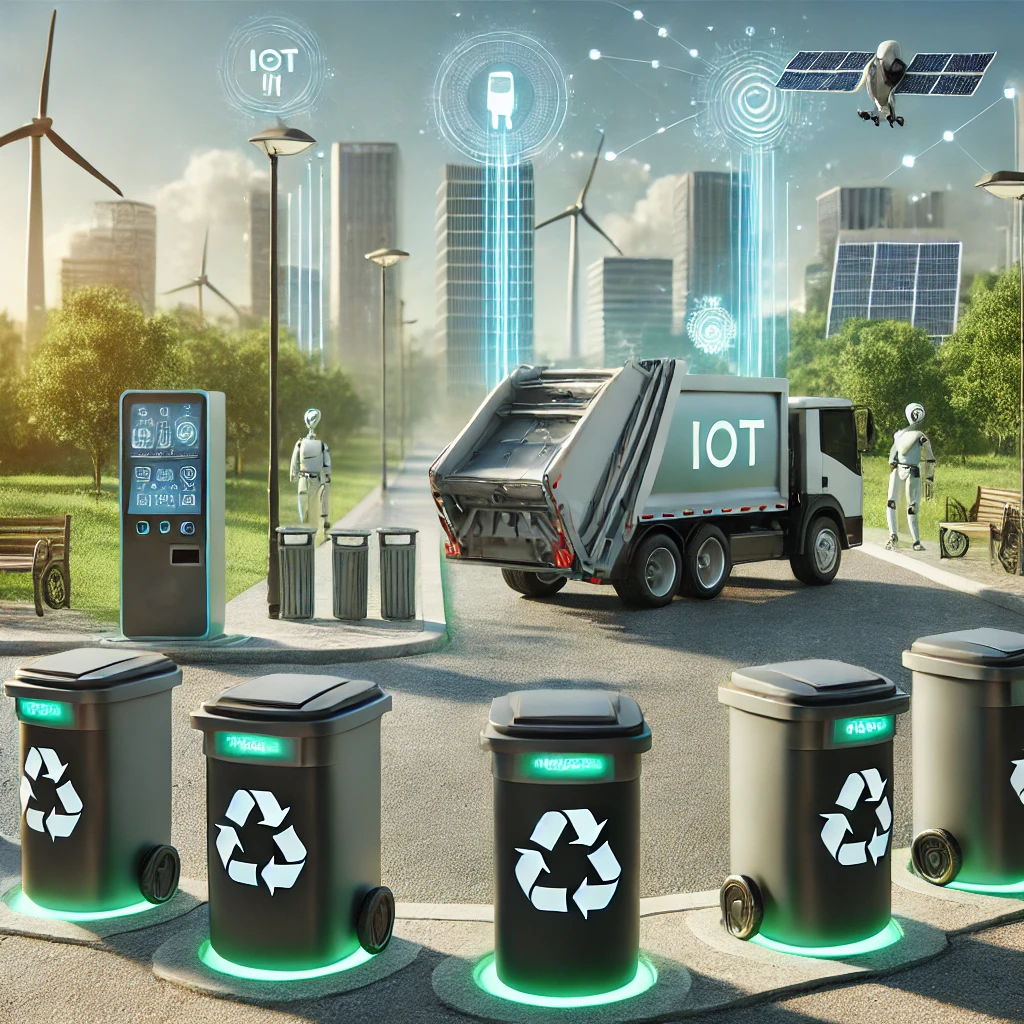Managing waste effectively is one of the biggest challenges faced by modern societies. With urbanization, growing populations, and increasing consumerism, the amount of waste generated globally is staggering. Traditional waste management methods often struggle to keep pace, causing environmental issues and resource inefficiencies. This is where smart waste management solutions come into play, offering innovative and sustainable ways to tackle this pressing problem.
What is Smart Waste Management?
Smart waste management refers to the use of advanced technologies, data-driven strategies, and innovative processes to optimize the collection, disposal, recycling, and monitoring of waste. Unlike traditional systems, smart solutions focus on efficiency, sustainability, and reducing environmental impact.
Key technologies like the Internet of Things (IoT), artificial intelligence (AI), and machine learning are at the core of smart waste management systems. These technologies enable real-time data collection, predictive analysis, and automation, making waste management more efficient and less resource-intensive.
Key Components of Smart Waste Management Solutions
- IoT-Enabled Waste Bins Smart waste bins equipped with IoT sensors play a significant role in modern waste management systems. These sensors monitor the fill levels of bins and send real-time data to waste management operators. This eliminates unnecessary trips to empty bins that aren’t full and ensures timely collection, optimizing fuel usage and reducing carbon emissions.
- Smart Fleet Management Waste collection vehicles are now being integrated with GPS, route optimization software, and AI. These systems create efficient collection routes based on real-time data from IoT-enabled bins, saving fuel, time, and labor costs.
- Waste Sorting Automation Advanced sorting technologies like AI-powered robots and optical sensors are used to separate recyclable materials from general waste. These systems ensure higher recycling rates by minimizing human error and increasing the speed of sorting processes.
- Data Analytics for Waste Reduction Data analytics tools analyze waste generation patterns and predict future trends. This information helps cities and organizations design waste reduction strategies, improve recycling efforts, and plan for future waste management infrastructure.
- Mobile Apps for Citizen Engagement Many municipalities and private companies are now offering mobile apps that allow citizens to track waste collection schedules, report missed collections, and access information on recycling guidelines. These apps empower residents to actively participate in waste management.
Benefits of Smart Waste Management
Adopting smart waste management solutions brings numerous benefits to individuals, businesses, and governments. Here are some of the key advantages:
- Increased Efficiency: By using real-time data, waste collection and disposal processes become more streamlined, reducing operational costs and resource wastage.
- Reduced Environmental Impact: Smart technologies help cut down on greenhouse gas emissions by optimizing vehicle routes and increasing recycling rates.
- Cost Savings: Efficient waste management reduces the overall cost of operations for municipalities and private companies, saving taxpayers’ money.
- Improved Recycling Rates: Automated sorting and targeted recycling campaigns lead to better recovery of recyclable materials, conserving natural resources.
- Enhanced Public Health: Timely waste collection prevents the accumulation of garbage, reducing the risk of diseases and pests.
Examples of Smart Waste Management in Action
- Smart Cities Leading the Way Cities like Singapore, Seoul, and Amsterdam are at the forefront of smart waste management. In Singapore, smart bins equipped with sensors have significantly reduced waste collection trips, saving costs and reducing emissions. Amsterdam uses underground waste containers connected to IoT systems, which notify collection trucks when they’re ready to be emptied.
- AI-Powered Recycling Plants Companies like AMP Robotics are leveraging AI to improve recycling processes. Their AI-powered systems can identify and sort recyclable materials from waste streams with incredible accuracy, boosting recycling efficiency.
- Smart Waste Management Startups Startups such as Rubicon and Ecube Labs are revolutionizing the waste management industry by providing smart bin solutions, analytics platforms, and waste management apps to cities and businesses.
Challenges and Considerations
While smart waste management solutions offer immense potential, their implementation is not without challenges:
- High Initial Investment: The adoption of IoT devices, AI systems, and data analytics platforms requires significant upfront investment, which may be a barrier for smaller municipalities.
- Data Privacy Concerns: Collecting and analyzing large volumes of data raises questions about privacy and security.
- Maintenance and Scalability: Smart systems require regular maintenance and updates, and scaling these systems to large cities can be complex.
- Public Awareness and Participation: Engaging citizens and ensuring they actively participate in waste reduction and recycling is crucial for the success of these initiatives.
Future Trends in Smart Waste Management
The future of waste management lies in the integration of emerging technologies and increased collaboration between governments, businesses, and citizens. Some trends to watch for include:
- AI-Driven Waste Sorting
Continued advancements in AI technology will make waste sorting faster, more efficient, and less labor-intensive. - Blockchain for Waste Tracking
Blockchain technology could be used to track waste from generation to disposal, ensuring transparency and accountability in waste management systems. - Circular Economy Initiatives
Emphasis on a circular economy—where waste is viewed as a resource to be reused—will drive innovation in recycling and repurposing waste materials. - Waste-to-Energy Solutions
Technologies that convert waste into energy, such as biogas plants and incinerators with energy recovery capabilities, will play a larger role in sustainable waste management.
Conclusion
Smart waste management solutions are transforming the way we handle waste, offering sustainable and efficient alternatives to traditional methods. By leveraging advanced technologies like IoT, AI, and data analytics, cities and organizations can reduce environmental impact, save costs, and create cleaner, healthier communities. However, achieving these goals requires overcoming challenges like high initial investments, data privacy concerns, and public engagement. As innovation continues, the widespread adoption of smart waste management solutions will pave the way for a more sustainable future.
This article reflects the latest developments and expert insights in smart waste management. For more useful tips, news, and updates on sustainability solutions, stay tuned to our website—your official source for all things eco-friendly.
